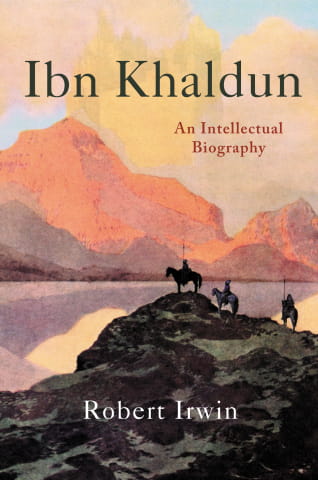
Ibn Khaldun: An Intellectual Biography
Tom Verde
Robert Irwin
Princeton UP, 978-0-69117-466-2, $29.95, hb.
This is not so much a traditional biography as an exploration of one of the greatest minds in the history of thought. There are sections on Ibn Khaldun’s education, travels and government postings in North Africa, Egypt and Spain in the 14th and early 15th century. And we learn of shoulder-rubbing with contemporary historians like Fez’s Ibn al-Khatib, “the single most influential person in Ibn Khaldun’s life,” or Egypt’s al-Maqrizi, who praised his colleague’s groundbreaking analysis of history—the Muqaddimah—as “the cream of knowledge,” composed in a style “more brilliant than a well-arranged pearl.” This study examines Ibn Khaldun’s manifold interests and curiosities (among them nomads, law, astrology and economics), and methodology, particularly “cause and effect,” and “how things work” when they are similar or dissimilar—an unusual approach for a historian of his day. The reflections of modern admirers, from Arnold Toynbee to Mark Zuckerberg, add scaffolding to Irwin’s pursuit of the “sheer depth” of Ibn Khaldun’s thinking.
You may also be interested in...

British Museum Curator Takes Readers on Journey Spanning 6,000 Years
Southeast Asia curator Alexandra Green takes readers on a journey spanning 6,000 years, highlighting objects from Neolithic stone tools to contemporary paintings.Celebrate Women's History Month With These Reads on Women Throughout History
To help honor Women’s History Month, AramcoWorld brings you a list of 10 female-focused reads that celebrate women throughout history.
Child's Play: Reconstructing Everyday Life of Youth in Ancient Egypt
Egyptologist Amandine Marshall observes how the depictions of children created by Ancient Egyptians seldom illustrated their actual lives.